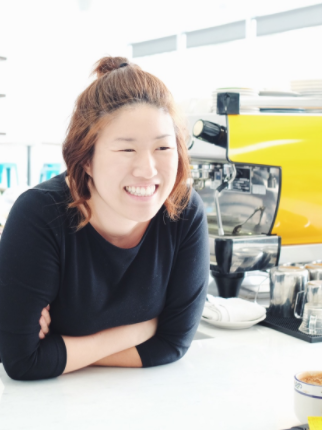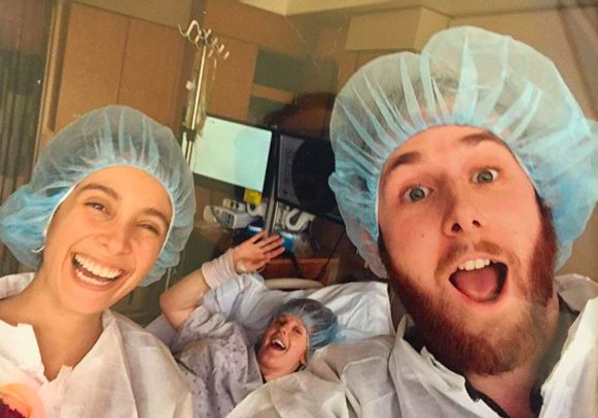VS: And maybe in group there is more opportunity for risk and growth since there are more people involved versus individual.
GS: I can’t say there is more opportunity; it sort of depends on what people need. Some people really need the individual experience for various reasons and that is where at different points in their life they will find the maximum benefit. Although my other sense is that most everybody at some point can make great use of a good group experience. The other thing about group though that is most interesting is that you have a lot of personalities and characters in group who are not primarily there to listen well to you and respond to what you as a patient developmentally need. They are there to over time find themselves and so that is very different. As a patient in group you are going to rub up against people that are very similar that you fit with really well and those you don’t fit with really well. And you can learn from both. And that is the magic of group. No one is there primarily there to meet your needs. So right away that is a harsh reality. One that becomes ultimately very very growth-full. Most people pick their therapist because they feel in some way akin or comfortable and the therapist will go out of his or her way to make sure the patient feel comfortable, which is fine, but that means the kind of relationships that they can have is somewhat limited because they have this basic comfort between them. And aspects of each other that might be very problematic let’s say in the patient’s life might not be triggered. It is very hard to have a sibling kind of transference with the therapist. And sibling experiences are very, very important to people’s lives. They’re more important than we tend to give them credit for. And those are much more easily accessible in group.
VS: Can you say a little bit more about why sibling relationships or transferences are so important?
GS: They are underemphasized. We emphasize in the literature the relationship to the parents. And that’s fine. And especially in the early years that’s important. But if you ask people about their lives, invariably what comes up are people’s relationships to their siblings. And if they got along, if they were good mentors and friends to each other, where they fit in the family. Siblings are important and they determine a lot about how we relate to our peers. So the group is a much more natural place to have those kinds of relationships. And in addition, you will find aspects of a parent that you really liked or disliked that may not have been available to you in the individual relationship. And people have all kinds of experiences that come not only from their family, but being in school with friends that are very impactful in their lives and they are likely to find that in group much more easily than individual. Individual they can remember them and in group of course they get to re-experience them.
VS: And it sounds like that re-experiencing can be filled with a lot of growth, but it can also be filled with a lot of discomfort at times.
GS: It is filled with a lot of discomfort, so a good deal of what you do in individual therapy, and especially group, is find ways to help the group tolerate the discomfort. That is very, very important. Because when groups or patients cannot tolerate much discomfort, there’s not going to be a great deal of growth. And one of the larger sources of discomfort is how they feels towards one another when they are in the midst of aspects of their prior experiences that have been difficult. It’s one thing to talk about one’s relationships to a sibling or parent and sort of talk about it in absentia and it’s quite another thing to talk about that as it’s being played out here and now in the room and understanding what you as the patient bring to that experience, how you help to train someone else to be a part of your early drama.
VS: Your job as the leader then is to find a balance between making it tolerable enough for the group to hold those feelings, while at the same time trying to increase the authenticity in the room so that these things can be talked about and felt more.
GS: I think that’s a very good way of putting it. I’m going to help the group figure out how to make that tolerable. I don’t make it tolerable for them, I help the group engage in the process where we can over time find a way to make it tolerable or not.
VS: What happens if it is not tolerable?
GS: Well if it’s not tolerable and it’s not being talked about, people will either begin to shut down and you will have a group that has come to a halt, sometimes called a status quo resistance, or you will find that people will begin to act out a lot of aggression behaviorally: lateness, absences, people wanting to leave the group. Sometimes the leader picks this up because they are uncomfortable in the group – they begin to dislike coming to the group, they are not enjoying themselves, they are finding desires to get rid of the group or get rid of people in the group. And that is one pathway, that through the leader’s willingness to be authentically attached to themselves, they begin to realize that there’s something happening in the group that really needs to be attended to.
VS: And in those types of situations…
GS: By the way, I’m glad you’re following me because I’m just sort of free associating. So I’m glad you’re following.
VS: Oh yeah, I am right here with you. So in those instances in group where you might be feeling some of those feelings, is that something that you are sharing with the group or is that something that you are just using as a way to make a “group as a whole” interpretation?
GS: It sort of depends on the group, where they are at developmentally, what I think their relationships are like, what they can tolerate. Let's see if I can think of a good example that would be great. Let’s see if I have an example [pauses]. I don’t have one at the moment, but maybe I will think of one.
VS: That’s fine. But yeah it sounds like depending on what the group can tolerate developmentally you may be sharing more of your authenticity in terms of how you’re feeling or you might limit it a little bit more so that they can tolerate it and process it.
GS: Something like that. So I had a group where there were a number of people who were quite disruptive in the group, so I remember one time coming in and saying: “I found myself coming in to this group with a lot of tension today. Who’s tension am I picking up?” So I remember using it once that way. I can remember some other time thinking about how much competition there was in the room so I sort of primed myself based upon my own sort of fantasies that were coming to me, I was thinking a lot about being a kid and playing baseball and how competitive that was. I came into the room and someone in the group who I thought was most triggered by the degree of competition and I asked him if they thought there was any competition in the group that we weren’t talking about. So sometimes that will happen.
VS: So it sounds like you use your feelings as a way to try to hone in on someone in the group or to have the group kind of wonder about where these feelings might lie in the group, whether it is in the group-as-a-whole, or particularly resonating with one of the members.
GS: Exactly. Beautifully said. I think I will interview you. Good job!
VS: We can swap roles next time. [laughs]. One final question: How has your definition of authenticity changed over the years? Whether it is through various trainings or just through your own view of the world, how have you noticed it changing?
GS: Well, I will put it in two ways, in terms of my sense of authenticity and what I am looking for with patients. In terms of my sense, my original training was more classically analytic so there was absolutely no emphasis on the therapist/analyst being authentic to the patient at all. That radically shifted, I actually trained at times with Carl Rogers and in Gestalt therapy. So that really changed things around for me and I began to appreciate how important the therapist’s authenticity was. Then by the time I got back into analytic training the field had changed and it was now being valued to a very different degree. So that has allowed me to have a lot more presence and enjoyment in my work. It really wasn’t enjoyable keeping so much of me apart, it was sort of deadening for me. At the same time, I find it more enlivening and not scary in the way that it would have been 20 or 25 years ago to have those authentic moments and spontaneous moments with people. Both in group and individually. But those moments in group are sort of a life blood of what happens in group. It’s inherently a less predictable place. And it needs to be. Once it gets predictable, it’s sort of game over.
VS: Is that what you were mentioning before when you were talking about the status quo?
GS: Yeah. That’s one of the things. Yes. When the group becomes predictable and routinized, it is a level of communication, you have a system that no longer has any perturbations in it. It is never shaken up and therefore everyone is not shaking themselves up and not shaking others up. So it is a shark dying, not moving in the water. The authentic encounters in group are what keeps it going and the ability of the therapist to tolerate all the intense feeling that occur within the authentic encounter is what is more anxiety provoking in people, but what is ultimately the most fun and the most enlivening. Over time I have been able to tolerate more of that, so my groups have more of that. And that part is terrific.
VS: And it sounds like then the patients are able to experience, if they are able to, a wider range of authenticity if you are able to tolerate a wider range.
GS: Exactly. So there’s often as much laughter as there are tears in my group. Because that’s the range of human experience.
VS: I think that is a wonderful note to end on, people in group being able to share as many laughs as good cries. I think sometimes people think that therapy is always supposed to be this painful daunting emotionally wrenching thing and that’s not as authentic.
GS: No, it’s not.
VS: There’s a wider range of experiences and you really encourage your group members to delve into that if they are ready.
GS: Absolutely.
VS: Wonderful. Well thank you Gil for being available this morning for the interview. We’re very excited to kind of mull over these thoughts that you have provided us about authenticity, especially as we are thinking about the new year and how we all at Michelle Harwell Therapy want to help our clients to become more authentic as they are beginning a new year and maybe a new chapter for themselves.
GS: Well you know, it gave me the opportunity to do more thinking more about it. I myself am in a consultation group with people around the country. So I ran this past my group, and that was a great experience and we all had an interesting time talking about it. So actually I have enjoyed the process.
VS: Wonderful. That’s wonderful to hear.
Gil Spielberg, PhD, ABPP, is a clinical psychologist and psychoanalyst who maintains a private practice in Los Angeles, California. His specialty is group therapy, a form of therapy in which a small number of people meet together under the guidance of a therapist to help themselves and one another by developing, exploring, and examining interpersonal relationships within the group.




















